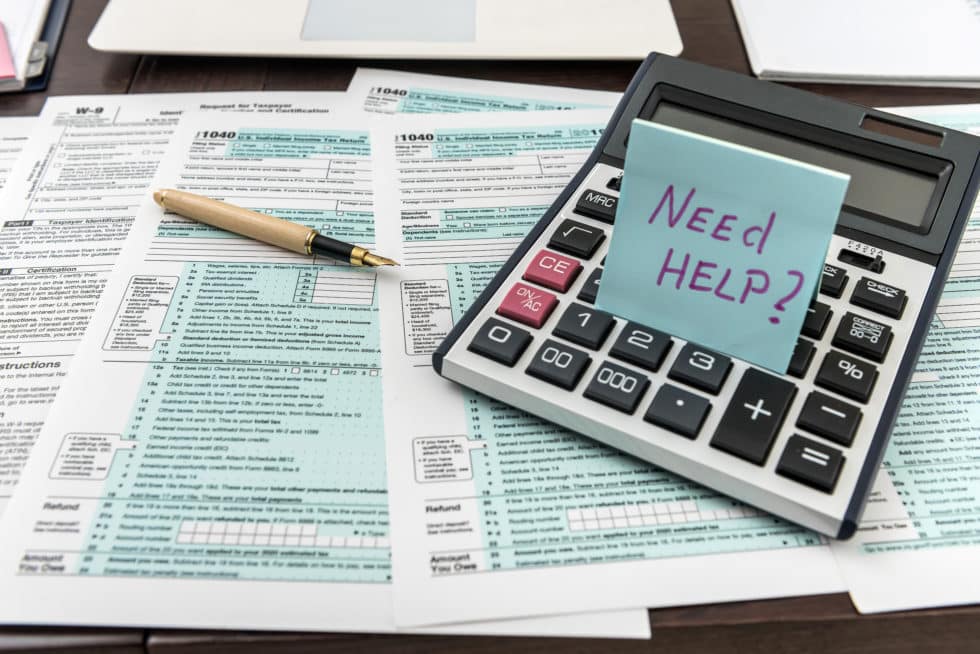Don’t Make These Common But Costly Tax Return Mistakes
Whether you crushed it in 2021 or your business was slower than you’d like, tax season is looming and it’s important to file right and avoid costly mistakes. January 24 is the first date you can file your 2021 taxes, and it makes sense to file early and accurately in a year when the IRS expects to be swamped. IRS Commissioner Charles Rettig recently warned that—due to several million pieces of backlogged work from previous years coupled with pandemic related challenges—service backlogs and 60+ day response times will be the norm this year. Now more than ever, it’s important to avoid mistakes.
Our friends over at the IRS recently issued some guidance on how to avoid the most common tax return mistakes, and we’ve got all the details here. (Spoiler alert…the BEST way to avoid mistakes is to let the experts handle things. Our advisors have decades of experience with small businesses and entrepreneurs and they know how to help you keep every last penny you can. And they’ll handle your personal taxes for no additional fee!)
Before you file your personal and small business taxes, take a look at the most common tax return mistakes outlined below. Some of these things are shockingly simple, but incredibly important. Need help? Reach out for a free consultation to learn how our PRIME advisors can take over the tricky stuff, use their expertise to help you save big, and make sure you’re never that poor schmuck waiting on hold for 23 days for an IRS rep. Who has time for that?
Remember, it’s not what you make, it’s what you keep.
Nine Tax Return Errors to Avoid
Tax laws may seem tricky, but you’d probably be surprised to learn that the most common tax return errors are shockingly simple. Tax software can help eliminate many of these errors, but according to the IRS, tapping a pro can be the most bullet proof way to avoid these mistakes.
- Filing too early. You don’t want to file late, but you also should avoid filing prematurely. If you don’t wait to file before you receive all the proper tax reporting documents, you risk making a mistake that may lead to a processing delay. This year, those delays can be even longer than normal.
- Missing or inaccurate Social Security numbers. Watch for typos on the Social Security numbers you put on your tax returns. Each SSN on a tax return should appear exactly as printed on the Social Security card.
- Misspelled names. A misspelled name can wreak havoc on your tax return. Make sure it matches your Social Security card.
- Inaccurate information and typos. Tax return documents ask for lots of information, and although it may be exhausting to track down all the right info (we can help with that!), it’s important to stay focused and avoid typos and inaccuracies. Be sure to carefully enter any information about wages, dividends, bank interest, and other income received. This includes any information needed to calculate credits and deductions.
- Incorrect filing status. Don’t choose the wrong filing status. The Interactive Tax Assistant on IRS.gov can help taxpayers choose the correct status, but it can be tricky if more than one filing status applies. A professional advisor is the best way to avoid making a big mistake on this one.
- Math mistakes. If you’re planning to file your own taxes, make sure your basic math skills are sharp! Math errors are some of the most common mistakes, so taxpayers should always double check their addition and subtraction. Better yet, let a pro take responsibility for making sure everything is correct!
- Figuring credits or deductions. It’s easy to make a mistake figuring things like earned income tax credit, child and dependent care credit, child tax credit, and recovery rebate credit. The Interactive Tax Assistant can help determine your eligibility for tax credits or deductions, but a professional advisor is the best way to make sure you’re getting every single deduction and credit to which you are entitled. Professional tax return prep almost always pays for itself in savings.
- Incorrect bank account numbers. Direct deposit is the fastest and most reliable way to get your refund, but it’s crucial that you input the correct routing and account numbers on your tax return.
- Unsigned forms. If you don’t sign it, your tax return will not be valid. In most cases, both spouses must sign a joint return. Exceptions may apply for members of the armed forces or other taxpayers who have a valid power of attorney. If you file your return electronically, you can sign it digitally before submitting.
This year more than ever, the IRS is urging all taxpayers to file electronically, choose direct deposit, and avoid mistakes to get their refund faster. Any errors or missing pieces of information could cause extremely long processing delays this year, as the IRS is dealing with a massive backlog and pandemic-related staffing issues. Want to offload the stress and leave things to the experts? Our PRIME advisors are experts at finding every deduction so that you can keep more of what you make and get your refunds as fast as possible. Set up a consultation today!

